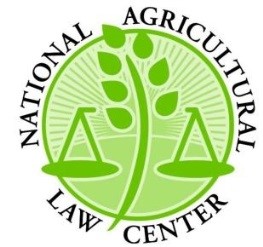A comprehensive summary of today’s judicial, legislative, and regulatory developments in agriculture and food. Email important additions to: camarigg at uark.edu
JUDICIAL: Includes SNAP, patent, real property, and NEPA issues.
Kawran Bazar Inc. and Mohammad Elias Khan, Plaintiffs, v. United States of America and Secretary Tom Vilsack, Defendants, 15-CV-6109 (NGG) (JO), 2016 WL 7235723 (E.D.N.Y. Dec. 13, 2016) concerned violations of the Supplemental Nutrition Assistance Program (SNAP). Plaintiff appealed FNS decision to impose disqualification rather than a financial penalty. Plaintiff argued a “hardship exception” should apply as his store was one of the only in his area selling Halal meat and specialty items to local Muslims. Court reasoned that plaintiffs’ case rested on an “implicit premise that halal meat and Bangladeshi specialty items constitute SNAP ‘staple food items.’” The court found defined “staple food” as “those food items intended for home preparation and consumption in each of the following food categories: meat, poultry, or fish; bread or cereals; vegetables or fruits; and dairy products.” Court ruled that “halal meats and Bangladeshi specialty items are not considered ‘staples’ under the SNAP program.” Defendants’ motion for summary judgment granted.
U.S. WATER SERVICES, INC., ROY JOHNSON, Plaintiffs-Appellants v. NOVOZYMES A/S, NOVOZYMES NORTH AMERICA, INC., Defendants-Cross-Appellants, 2015-1950, 2015-1967, 2016 WL 7240221 (Fed. Cir. Dec. 15 2016) concerned a patent infringement dispute involving ethanol production from whole grains. At issue were competing patents and the central issue was whether earlier patents “inherently disclose using phytase to reduce deposits in ethanol production machinery.” Court found that plaintiff’s experts revealed there was a “dispute as to whether adding phytase in the manner disclosed . . . will necessarily lead to a reduction of insoluble organometallic salt deposits as claimed in the Patents-in-Suit.” Summary judgment not granted and case remanded.
In ST. BERNARD PORT, HARBOR & TERMINAL DISTRICT v. VIOLET DOCK PORT, INC., LLC, NO. 2016-CA-0096, 2016 WL 7238987 (4th Cir. Dec.14, 2016), defendant appealed a “quick-take expropriation” of its property initiated by plaintiff. The subject property comprised 75 acres of land, including a privately owned industrial port facility on the Mississippi River. On appeal, defendant argued plaintiff’s “expropriation was not for a public purpose and therefore violated its constitutional protections as a private landowner.” Court observed that, “For the taking to be constitutional it must be for a public purpose and the landowner must be paid just compensation.” Plaintiff offered evidence that it would maintain the current use of the property and offered “a comprehensive plan to expand the facility to include a dry and liquid bulk cargo operation.” Court determined plaintiff’s “expropriation of the Property was for a public purpose.”
In Donna W. Sherwood; Jerome D. Pinn; Vance Sherwood; Anthony Billingsley; Jennifer Peet; Richard Eugene Williams; Frank L. Oakberg; Bonnie E. Oakberg; Gerry M. Williams; Harold P. Sloves; Felicitas K. Sloves; Sheila D. Booe; Thomas R. Warren, Jr.; Jeffrey G. See, Plaintiffs–Appellants, v. Tennessee Valley Authority, Defendant–Appellee, No. 15-6161, 842 F.3d 400 (6th Cir. Nov. 17, 2016), plaintiffs alleged TVA adopted a “15–foot rule” for maintaining “vegetation buffer zones” for power transmission lines without conducting required environmental review under the National Environmental Policy Act (NEPA). Trial court ruled for defendant and on appeal, defendant moved to dismiss case as moot. Defendant argued an administrative record was unnecessary because they had “suspended use of the 15-foot rule and reverted to the right-of-way maintenance practices that were utilized prior to the introduction of the 15-foot rule.” Appellate court reasoned that “even if TVA has abandoned the fifteen-foot rule, the agency’s promise to perform NEPA review before changing its buffer-zone maintenance policies is not an adequate assurance that its challenged conduct will not recur.” District court ruling for defendant reversed.
LEGISLATIVE:
H.R. 6529: To authorize the Secretary of Interior to complete a land exchange with the Chugach Regional Alaska Native Corporation. Bill referred to House Committee on Natural Resources. Sponsor: Rep. Don Young [R-AK0].
H.R. 6400: To revise the boundaries of certain John H. Chafee Coastal Barrier Resources System units in New Jersey. Bill’s text for status is now available.
REGULATORY: Includes FWS and FDA rules and notices.
FISH AND WILDLIFE SERVICE:
Rule FWS revises regulations for eagle nonpurposeful take permits and eagle nest take permits. Details here.
Notice FWS announces availability of a conservation plan and environmental impact statement for Silvio O. Conte National Fish and Wildlife Refuge. Info here.
FOOD AND DRUG ADMINISTRATION:
Notice FDA announced a guidance for industry entitled “Gifts to FDA: Evaluation and Acceptance.” Details here.
Notice FDA announced availability of guidance for industry entitled “Bioequivalence: Blood Level Bioequivalence Study.” Guidance was developed for veterinary use by the International Cooperation on Harmonisation of Technical Requirements for Registration of Veterinary Medicinal Products. Details here.
